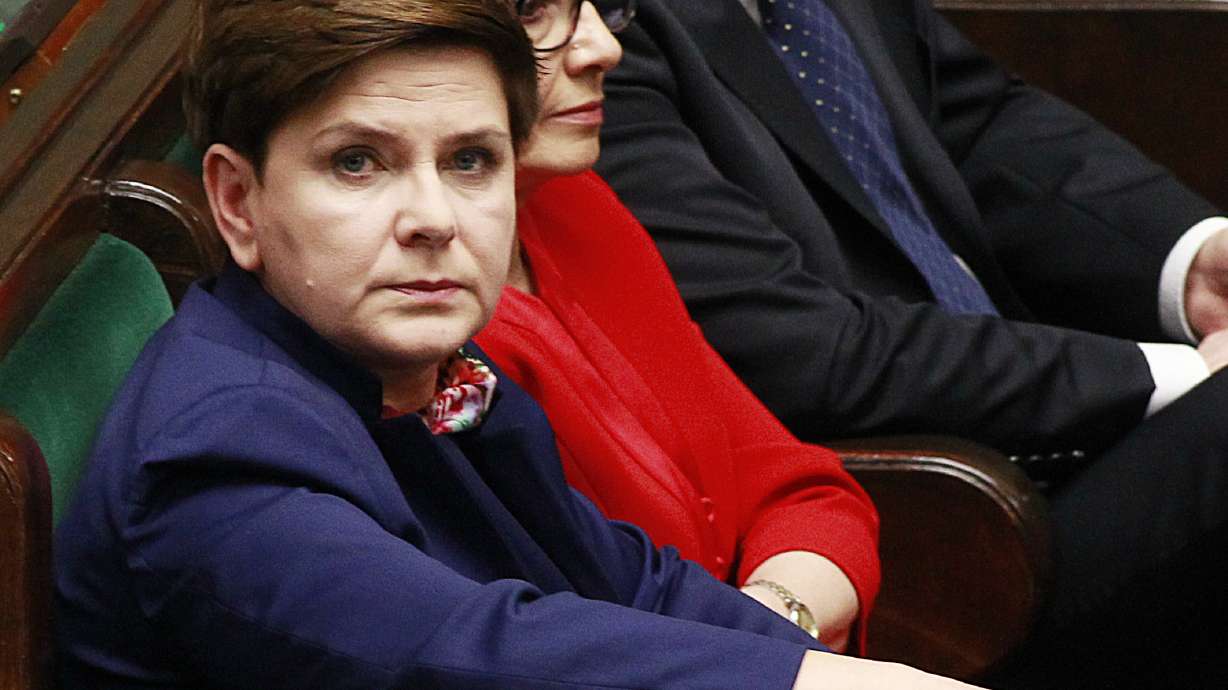Estimated read time: 2-3 minutes
This archived news story is available only for your personal, non-commercial use. Information in the story may be outdated or superseded by additional information. Reading or replaying the story in its archived form does not constitute a republication of the story.
BRUSSELS (AP) — Poland's prime minister chided the European Union on Tuesday for spending too much time on perceived problems in Warsaw and said the country's changes to its constitutional court and media legislation are an internal matter.
Beata Szydlo told the EU parliament that the major legislative changes that spurred a probe from the European Commission were well within the rights of any EU nation to make and shouldn't be considered a threat to the rule of law.
Szydlo said "changes we carried out reflect EU standards and in no way differ from standards in other EU states."
"Poland doesn't deserve to be monitored," she said, adding her country was "hurt" by criticism that labelled the moves as threats to the principles of Western democracy.
"It is with pain that we hear these voices that pass judgment on Poland," she said. "They are unjust."
Poland has come under strong international criticism since the conservative Law and Justice took power in November and moved swiftly to exert its influence on the nation's Constitutional Tribunal and public broadcasters.
During Tuesday's debate, Poland faced strong words of condemnation from Guy Verhofstadt, the leader of the liberal ALDE group.
Verhofstadt turned to Szydlo and told her he respected the fact that she and her Law and Justice party won the elections, but expressed concern that the party is using its substantial majority to "dismantle the system of checks and balances in the country."
He said that even if the constitutional court wasn't perfect before, "you don't rectify it by paralyzing it."
Even if Szydlo faced criticism, the debate was subdued compared to the sessions when Hungarian Prime Minister Viktor Orban came to the legislature facing many of the same complaints.
Last week, the EU's executive commission decided to carry out a preliminary assessment of the new laws, the first step in a drawn-out procedure that could ultimately lead to suspending Polish voting rights in the 28-nation bloc.
___
Monika Scislowska and Vanessa Gera in Warsaw contributed to this report.
Copyright © The Associated Press. All rights reserved. This material may not be published, broadcast, rewritten or redistributed.








